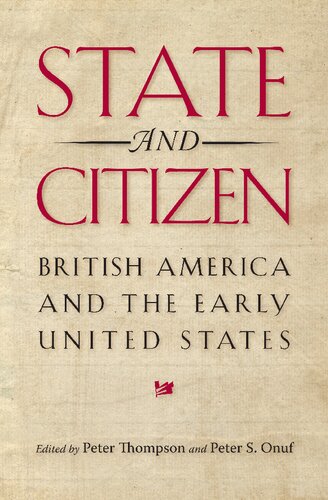

Most ebook files are in PDF format, so you can easily read them using various software such as Foxit Reader or directly on the Google Chrome browser.
Some ebook files are released by publishers in other formats such as .awz, .mobi, .epub, .fb2, etc. You may need to install specific software to read these formats on mobile/PC, such as Calibre.
Please read the tutorial at this link: https://ebookbell.com/faq
We offer FREE conversion to the popular formats you request; however, this may take some time. Therefore, right after payment, please email us, and we will try to provide the service as quickly as possible.
For some exceptional file formats or broken links (if any), please refrain from opening any disputes. Instead, email us first, and we will try to assist within a maximum of 6 hours.
EbookBell Team

0.0
0 reviewsPointing the way to a new history of the transformation of British subjects into American citizens, State and Citizen challenges the presumption that the early American state was weak by exploring the changing legal and political meaning of citizenship. The volume’s distinguished contributors cast new light on the shift from subjecthood to citizenship during the American Revolution by showing that the federal state played a much greater part than is commonly supposed.
Going beyond master narratives―celebratory or revisionist―that center on founding principles, the contributors argue that geopolitical realities and the federal state were at the center of early American political development. The volume’s editors, Peter Thompson and Peter S. Onuf, bring together political science and historical methodologies to demonstrate that citizenship was a political as well as a legal concept. The American state, this collection argues, was formed and evolved in a more dialectical relationship between citizens and government authority than is generally acknowledged. Suggesting points of comparison between an American narrative of state development―previously thought to be exceptional―and those of Europe and Latin America, the contributors break fresh ground by investigating citizenship in its historical context rather than by reference only to its capacity to confer privileges.